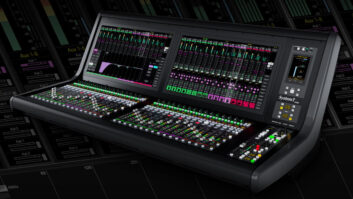

My wife and I have our preferred ways of reading books, and we’re both pretty passionate about that chosen methodology. Me? Well, if you read this column (particularly my cranky “The End of Everything” installment”), you can certainly guess that I’m more of an old-school reader, preferring the good old physical book to the still-surging-in-popularity digital ebook. I mean, I have a rather large library of modern first editions that I consider to be works of art. I often declare my love for the tactile heft of a real book while my wife curls up with her ultra-convenient and featherweight Kindle, which is loaded with her own large library of novels just waiting for her to click on and enjoy.
Frequently, we tease each other about the drawbacks of our chosen formats. My wife shakes her head at the bulkiness of my real books—their heaviness, the vast amounts of shelf space that my personal library requires, their analog and “uncool” antiquity. And I mock the e-reader’s ephemeral deconstruction of the act of reading—the fact that an age-old art, with deep involvement of the senses, has been reduced dispassionately to a bunch of bits and bytes. But just as often, we each try to sell the other on the perceived benefits of our own format. I point to the sheer historical vitality of the physical book, and she insists that digital reading is obviously the way of the future.
Fortunately for my point of view, the benefits and drawbacks of the physical book have been well-known for ages. There’s nothing new we’re going to learn about them and the ways we interact with them, except to compare and contrast them with this new upstart medium. But the ebook is a relatively new phenomenon. Sure, they’re exciting and new and convenient, but we’re still finding our way with them. The devices with which we consume digital books are changing all the time—becoming faster and sleeker and smaller and more capable—and their pricing structures and storage possibilities remain hot questions.
And now there’s a question of how our brains digest them. It seems I might have some more ammunition to use against my wife’s precious e-reader!
According to a recent study at Norway’s Stavanger University, Kindle readers don’t get as immersed in their books as readers of actual books. More specifically, readers of physical books in the study reconstructed events in stories better than Kindle readers, who “performed significantly worse” when asked to recount plot events in chronological order. Researchers suggested that the tactile aspect of real books helped readers remember plot: It might seem obvious, but the simple act of turning pages is an integral psychological component of determining reading progress. (Check out the original Guardian article about the study here.)
Readers of actual books also tended to absorb settings, characters, and objects better than ebook readers. When I mentioned this part of the study to my wife, she reacted immediately: “Okay, that’s true.” She recounted several situations in which she’d forgotten a character or plot development and wanted to quickly flip back a few pages to find that character introduction or occurrence. Yes, she said, today’s Kindle devices let you search for items and move through text easier than the Kindles of a few years ago, but she said there’s definitely something essential about the tactile experience of paging backward. (“Who’s that character again?”) Our minds connect with fingertips on paper better than fingertips on a Search button.
But again, e-readers are a comparatively new phenomenon. Evolving attitudes about digital books might mean that eventually our minds (even a mind like mine) will be completely at ease with ebook navigation—and the psychology of reading comprehension will naturally follow. Is it only a matter of time, whether that’s five or ten years or a couple generations, before real-book stalwarts are consuming ebooks just fine, and absorbing them just as well?
According to the article “Your paper brain and your Kindle brain aren’t the same thing,” research in neuroscience suggests that we use different parts of our brain when reading from paper versus reading off a screen. “The more you read on screens, the more your mind shifts towards ‘non-linear’ reading—a practice that involves things like skimming a screen or having your eyes dart around a web page.” The article suggests that the more we read in that mode, the less we’ll be able to engage in the kind of deep reading we’re accustomed to with physical books—that concentrated, immersive state that we love when we’re connecting with a novel, for example.
And that might encapsulate my own complaint about ebooks in general. I find the process of reading from a screen to be perfect for specific purposes: I appreciate it for research, for quick reading of short articles, and for social media. I’ve always thought tablets and e-readers would be ideal platforms for magazines and newspapers, for example—which is why it has frustrated me that those types of publications (particularly magazines) haven’t really taken off on devices. No, it’s books that have taken off—against all my notions of what makes books special. It will always be my view that e-readers are inherently imperfect devices for long-form reading.
More than that, I guess I worry most about generations to come. I dread a future that’s dominated by e-readers and non-linear reading, devoid of that deep reading. In our household of warring mindsets about the reading experience, we’re instilling our daughters with both philosophies. Both girls have their own private libraries of books that are special to them—those books with which they’ve established deep-reading connections. But they also enjoy the convenience of e-readers, especially for travel. I for one plan to make deep reading a priority in their lives, even as they’re increasingly consumed by the ubiquity of “devices of convenience and entertainment.”
What are your thoughts about actual books versus digital books? Do you envision a future in which real books simply no longer exist? Or is their history so strong and rich, and their psychology so entwined with our own, that they will always be a part of us? Can we adapt to ebooks so that we consume and comprehend them just as effectively as their printed counterparts? Time will tell.










